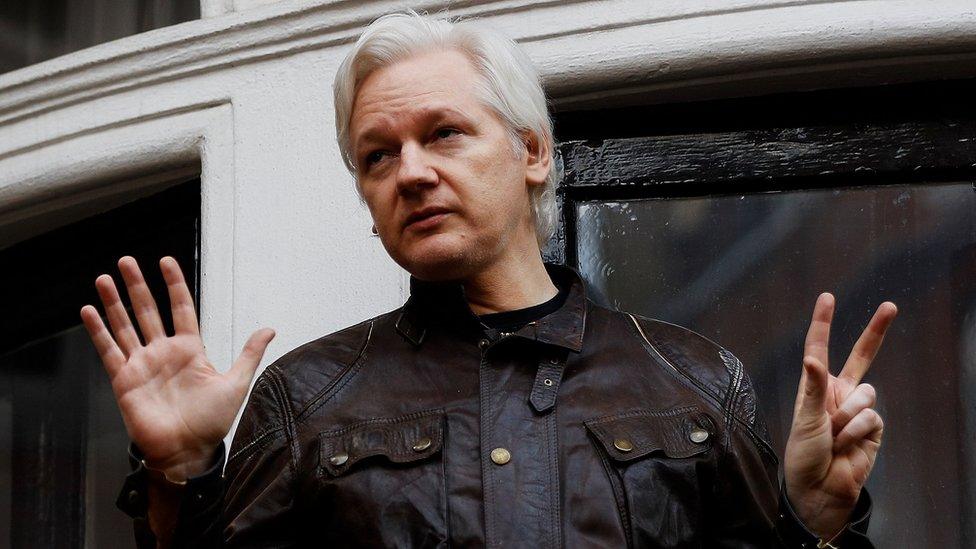Julian Assange: Ecuador seeks mediator in 'unsustainable' standoff
- Published

Mr Assange in May 2017, speaking after the original investigation against him was dropped
Ecuador says it is considering inviting a third-party mediator to tackle its long-standing disagreement with Britain over the fate of Julian Assange.
The foreign minister said the situation was "unsustainable".
The Wikileaks founder has been confined to the Ecuadorean embassy in London since 2012, claiming political asylum.
He was originally wanted on sexual assault allegations in Sweden, which have since been dropped, but says he now fears extradition to the US.
"We're considering and exploring the possibility of a mediation," Ecuador's foreign minister, Maria Fernanda Espinosa, said on Tuesday, adding that they could involve a "third country or personality".
"A person cannot live in those conditions for ever," she said.
Mr Assange, an Australian citizen, made headlines in 2010 when his organisation leaked US military helicopter footage, which showed the killing of civilians in Iraq.
London's Metropolitan Police says he will still be arrested if he leaves the embassy building, on the charge of failing to surrender to the court back in 2012 - and the UK refuses to guarantee he will not be extradited to the US.
Ms Espinosa said: "No solution will be achieved without international cooperation and the cooperation of the United Kingdom, which has also shown interest in seeking a way out."
In 2016, a United Nations panel ruled that Mr Assange was being "arbitrarily detained" and should be allowed to walk free. It said he should also be compensated for his "deprivation of liberty".
The UK Foreign Office, however, rejected the ruling.
Mr Assange's legal team have maintained his confinement to the embassy amounts to illegal detention.
Responding to Ms Espinosa's comments, a UK Government spokesman said: "The Government of Ecuador knows that the way to resolve this issue is for Julian Assange to leave the embassy to face justice."
The sexual assault allegations against Mr Assange were dropped in May 2017.
At the time, Ecuador said the UK should guarantee him "safe passage" to Ecuador if he leaves the embassy.